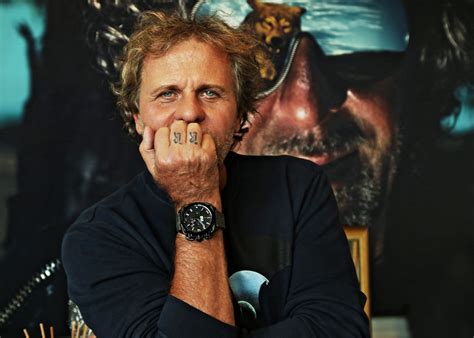A Quote by Rana el Kaliouby
You can understand so much about how consumers perceive a brand by analyzing their spontaneous, subconscious responses.
Quote Topics
Related Quotes
Consumers fall in love with a brand and it's important for a brand to develop and stretch itself to provide for their consumers. I don't suspect that a customer will walk into a store to buy a pair of jeans and end up buying a sofa, but it's about providing loyal consumers with a choice to create a lifestyle.
You have to understand your own psychology. You have to understand that human beings weren't really designed to invest. We have all these emotions that are appropriate responses if you're being chased by a tiger, but they're terrible responses if you've got a 30-year time horizon to think about investment or when you're trying to manage investment over 30 years.
It is now generally accepted that the roots of our ethics lie in patterns of behavior that evolved among our pre-human ancestors, the social mammals and that we retain within our biological nature elements of these evolved responses. We have learned considerably more about this responses, and we are beginning to to understand how they interact with our capacity to reason.
I actually take images of things and put them up around the wall and in a room. I set a room aside. It might be colors, it might be animals, or energy and words. And I'll just leave it there, so it begins to work on my subconscious when I think about the character. Which gives me some latitude to be really flexible and spontaneous but within the context of the character and the world of the character without having to think about it. Or I'll look at something or read something and let it work on my subconscious mind.
The truth is that we don't know much about the spiritual world except for what Scripture tells us, so it's unwise to think we can speak with clarity about what a divine being can or cannot do. The tools of analyzing the natural world are of no use for analyzing the supernatural world. For the latter we need rules of logic, and the supernatural beliefs of the biblical writers are quite defensible in that arena.
Microsoft Mobile Oy is a legal construct that was created to facilitate the merger. It is not a brand that will be seen by consumers. The Nokia brand is available to Microsoft to use for its mobile phones products for a period of time, but Nokia as a brand will not be used for long going forward for smartphones. Work is underway to select the go forward smartphone brand.
Given that ever-broadening array of options and alternatives, as consumers and investors, we are often bewildered. We need guidance. That's where today's brands come in. They are not so much signals about a particular product, they are signals about good judgment, trustworthiness. A big brand, whether it's Schwab or Disney, is becoming analogous to a portal that sells us advice about where we can find great deals.





































